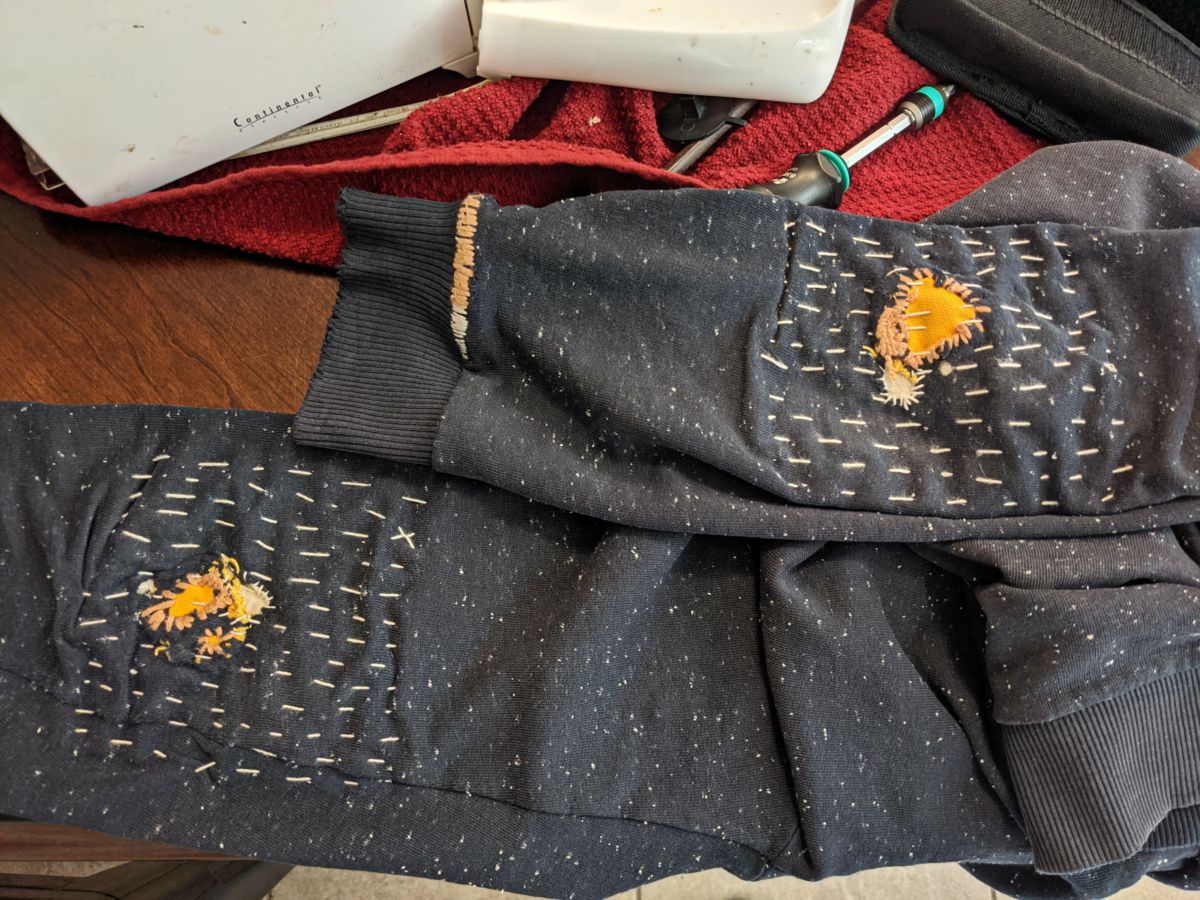Log: 5/28/2021
This week: The secularization/Westernization of Buddhism, IDEO, UFOs/UAPs, and #fixingfashion.
Questions on the origins of Buddhist concepts and Is secular Buddhism looked down upon in the Buddhist community?
Very interesting to read these threads on secularized/western Buddhism–which tries to “sanitize” Buddhism of its more fantastical elements. The western presentation often boils down to something like: “life is suffering, suffering is driven by desire, end desire to escape suffering”. Maybe the notion of karma remains because it’s in line with other western folk wisdom (e.g. “what goes around comes around”), but other elements like rebirth or that the Buddha had supernatural insight/powers are dismissed as nonsense. Even what it means to be “enlightened”, as one commenter notes, is different under this secularized view: “Do you imagine that enlightenment just means feeling calm?”. Maybe this kind of secularization or tampering down is a typical course for religions–thinking about secular Jews and most Christians I’ve met don’t believe angels are real–but with Buddhism in particular it has strong colonialist overtones (usually from white people and with some implication that people who do believe in the supernatural elements are backwards/ignorant for doing so–unenlightened in the sense of “the Enlightenment”).
I don’t necessarily mind secular Buddhism as a concept (the problem is more the industry around it and its extractive/appropriative nature) but it’s this attempt to re-write the historical image of the Buddha to conform to those beliefs–such that there exists an “authentic Buddhism” that does away with the elements you don’t like–that is upsetting.
Surviving IDEO, George Aye
I worked at IDEO almost a decade ago–it was my first “real” job out of college, and so I didn’t have any prior office experience to compare things to, but it was clear that there was a lot of kool-aid to drink and a lot of people drank it. I joined as part of a new team that was separate from the company’s typical design consulting work (we were brought into help out with specific technical needs here and there) and so I was fortunate enough to be insulated from a lot of the broader office politics, pettiness, and discrimination outlined in this piece. Given the general lack of self-awareness the place has–e.g. speaking really highly of its practice as world-transformative but basically doing little but intensify capitalism’s entrenchment in all aspects of our lives1 (I remember quite a bit of the work was basically creating new luxury offerings for financial institutions)–what’s outlined here is sadly not very surprising.
Related to this topic: I recommend “It’s Not You, It’s the System” by Janani Balasubramanian. This piece was helpful for me in deciding whether or not to quit IDEO.
How the Pentagon Started Taking U.F.O.s Seriously, Gideon Lewis-Kraus
As a kid I liked the idea of extraterrestrial life and thought things like Fermi’s Paradox and the Drake Equation were really fascinating (although the Drake Equation seemed almost arbitrary/impractical). A number of games I played growing up also built stories around aliens, like Dinosaur Safari (aliens going back in time to document dinosaurs) and The Journeyman Project 3: Legacy of Time (an “ancient aliens”-style game set in the mythical cities of Atlantis, El Dorado, and Shangri-La that, though the story was based around aliens, taught quite a bit about the actual ancient cultures these cities were inspired by). But aside from reading about these topics here and there I never got very deep into UFOs and the like. It felt like a cliff’s edge into unsubstantiated and woo conspiracy theories. At the same time, it seemed reasonable that there would be some phenomena that is difficult to explain, and that in itself was interesting without needing to jump to the conclusion of aliens. This article explores that latter space, and also goes over a campaign meant to consign UFOs and an interest in them into the former conspiratorial category (read: “crazy”), effectively making the topic untouchable if you want to be considered legitimate. I’m skeptical that anything really earth-shattering will come out of June’s UAP report but who knows, maybe something interesting will happen.
#fixingfashion videos
A really well-produced and comprehensive series on how to take care of your clothes, repair them, and modify them:
- How to take care of your clothes
- How to upgrade your clothes and keep them longer
- How to repair your clothes
A bunch of my clothing recently got several rips, and repairing them has been a nice way to keep my hands busy on long meetings.
Here’s the most recent repair I did–you can see the smaller yellow patches where I underestimated how large patches actually need to be relative to the size of the hole. The edges of those patches ended up tearing, leading to the substantially larger sashiko patch there now.
You could maybe point to IDEO.org as a counter-example but I’m not really familiar with their work and I’d guess they have their own issues.

